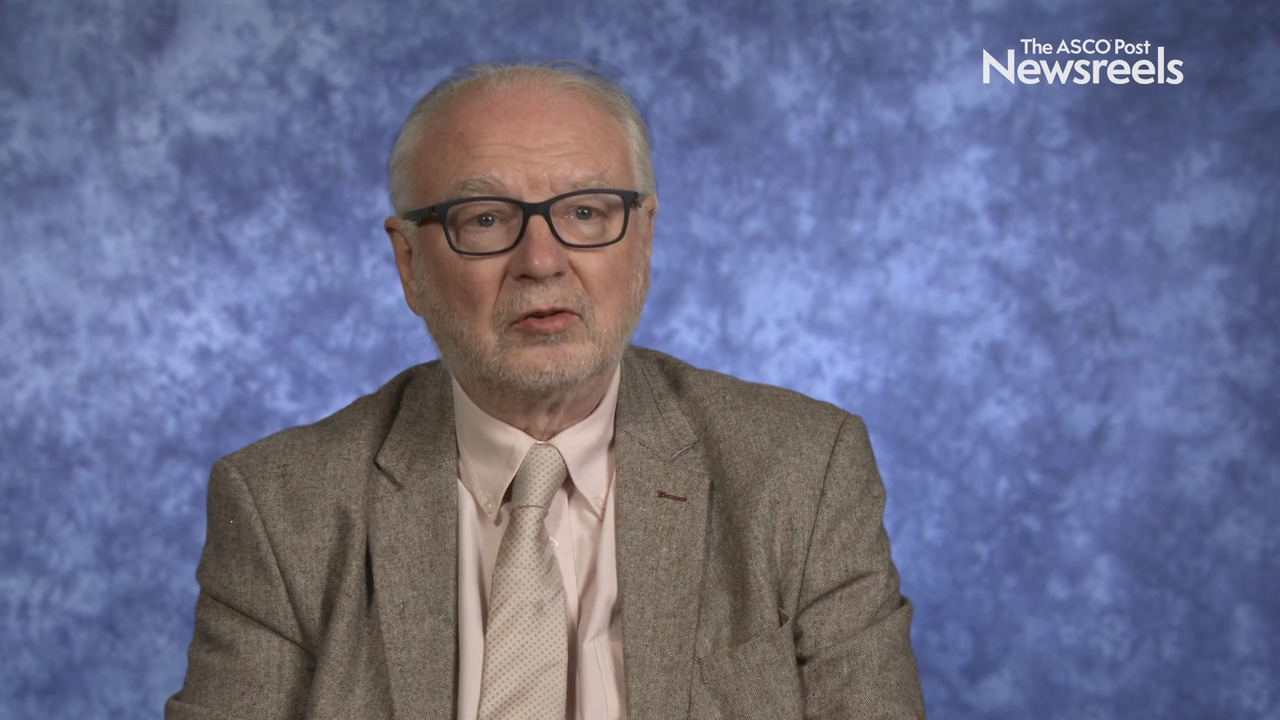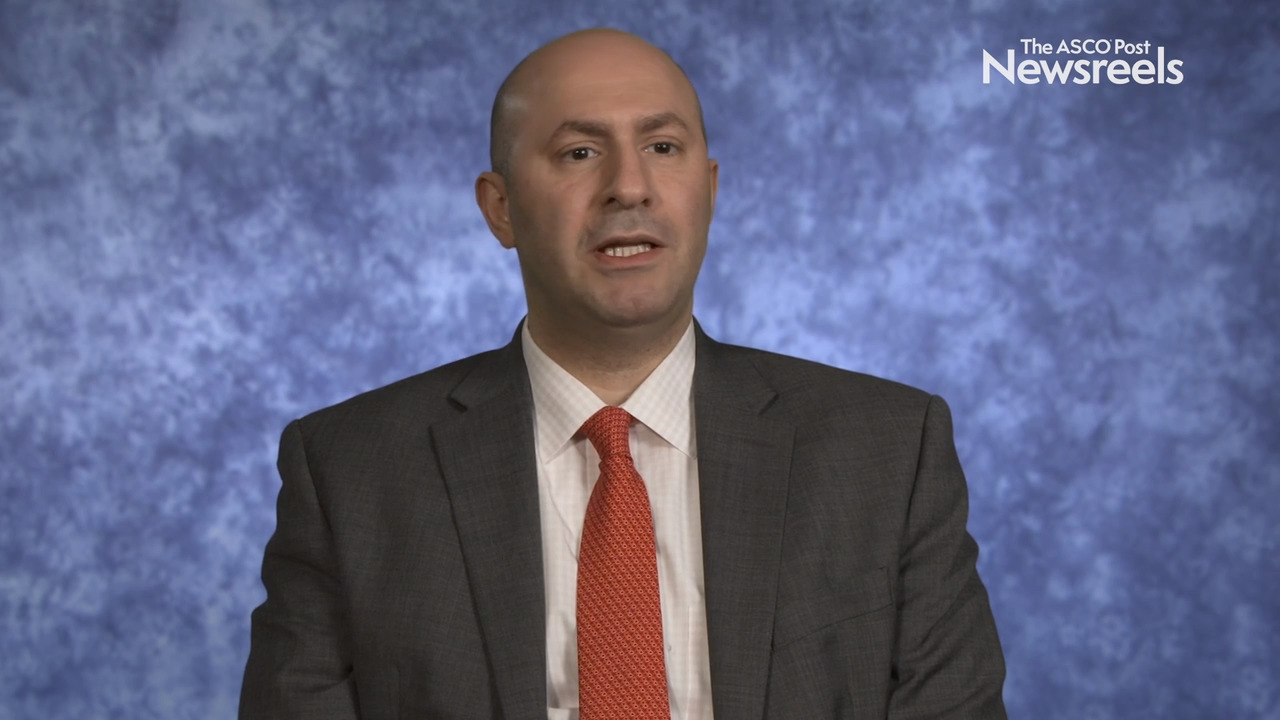Karim Fizazi, MD, PhD, on Prostate Cancer: Pain and Quality of Life in Patients Receiving Cabazitaxel vs Abiraterone or Enzalutamide
2020 Genitourinary Cancers Symposium
Karim Fizazi, MD, PhD, of the Institut Gustave Roussy, discusses results from the CARD study, which showed that cabazitaxel improved pain, time to pain progression, and symptomatic skeletal events, as well as quality of life in patients with metastatic castration-resistant prostate cancer. The findings support the use of this agent as a standard of care (Abstract 16).
The ASCO Post Staff
Julie N. Graff, MD, of Oregon Health & Science University and Knight Cancer Institute, discusses study findings that show pembrolizumab plus enzalutamide after progression on enzalutamide produced clinical activity and can lead to durable responses, with a manageable safety profile. The phase III KEYNOTE-641 trial will test patients who are enzalutamide-naive (Abstract 15).
The ASCO Post Staff
Syed A. Hussain, MD, of the University of Sheffield, discusses phase II findings comparing nintedanib or placebo in combination with gemcitabine and cisplatin in locally advanced muscle-invasive bladder cancer. The data showed that adding nintedanib was safe and well tolerated, with a significant improvement in progression-free and overall survival at 1 and 2 years (Abstract 438).
The ASCO Post Staff
Neeraj Agarwal, MD, of the University of Utah Huntsman Cancer Institute, discusses trial findings that showed the combination of cabozantinib and atezolizumab had a tolerable safety profile and showed activity in men with metastatic disease. Further evaluation of cabozantinib and atezolizumab is planned in a phase III trial (Abstract 82).
The ASCO Post Staff
David P. Dearnaley, MD, of The Institute of Cancer Research and Royal Marsden NHS Foundation Trust, discusses 8-year outcomes of the phase III CHHiP trial, which showed that modest hypofractionation is noninferior to conventional fractionation in localized prostate cancer, with no increase in side effects. Disease control was also reported in patients older than age 75 (Abstract 325).
The ASCO Post Staff
Toni K. Choueiri, MD, of Dana-Farber Cancer Institute, discusses findings from a phase I/II trial that found MK-6482 was well tolerated and demonstrated activity in heavily pretreated patients with clear cell renal cell carcinoma (Abstract 611).





